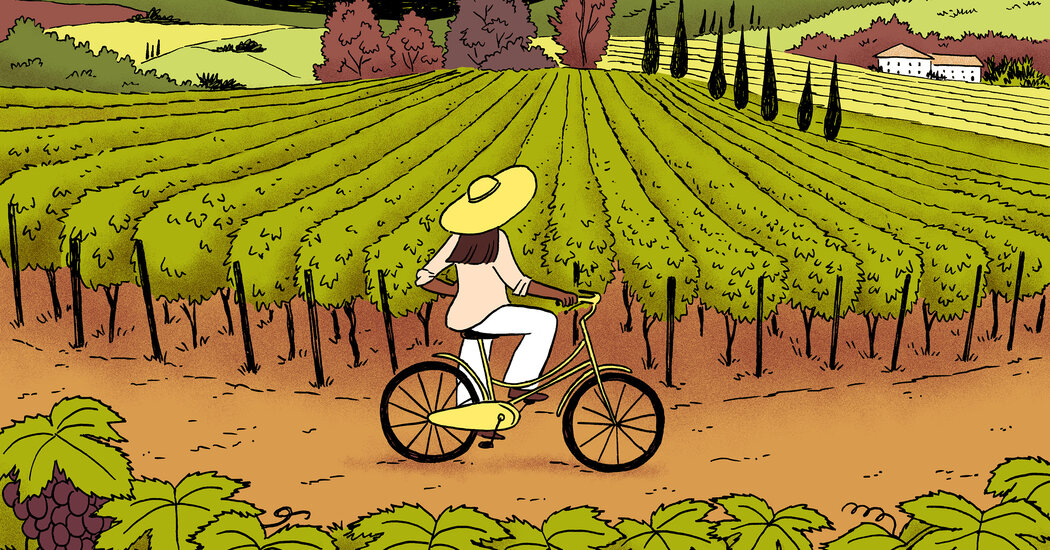
Amy Snook knows more about wine than your average traveler. Originally from California, she now lives in the Douro Valley of Portugal, her partner works in the wine industry, and she has visited 47 countries, many of which have celebrated viticulture. But seven years ago, on a trip to Mendoza, a winemaking region in the foothills of Argentina’s Andes Mountains, she opted to abstain from drinking alcohol, a decision she would repeat in future travels.
“It’s such a long flight to Argentina, and I was only there for 10 days,” said Ms. Snook, 34, a publishing professional. “I’m aware of how alcohol affects me, and I chose to prioritize feeling amazing every day of the trip over dealing with a hangover.”
During her visit, Ms. Snook bicycled between vineyards, reveled in breathtaking scenery, relaxed with spa treatments and engaged with sommeliers and winemakers, coming away with a new appreciation for sustainable and regenerative agriculture.
“The obvious question when you tell someone that you aren’t drinking is, ‘Out of all the places you could go, why travel to wine country?’” she said. “But to me, it makes perfect sense because these regions offer all the perks of luxury travel — wellness amenities, beautiful landscapes and fine dining.”
With 41 percent of Americans seeking to reduce their alcohol intake, according to a consumer-sentiment study released in January by NCSolutions, Ms. Snook’s experience is part of a larger trend: the rise of sober-curious or mindful drinking. While sober travel is hardly a new concept, its popularity is surging to new heights — particularly among younger generations — and forcing a reckoning in the wine industry. The 2024 State of the U.S. Wine Industry report, an annual forecast of market conditions and trends written by the wine-business analyst Rob McMillan, found that 52 percent of consumers ages 21 to 34 believe that consuming alcohol, even in moderation, is bad for your health.
This trend is reshaping travel to world-class wine destinations like Sonoma County, in California, as well as Mendoza and Tuscany. Blessed with temperate climates, extended growing seasons, fertile soils, rich histories and breathtaking vistas, these renowned wine locales are expanding their offerings to attract drinkers and nondrinkers.



